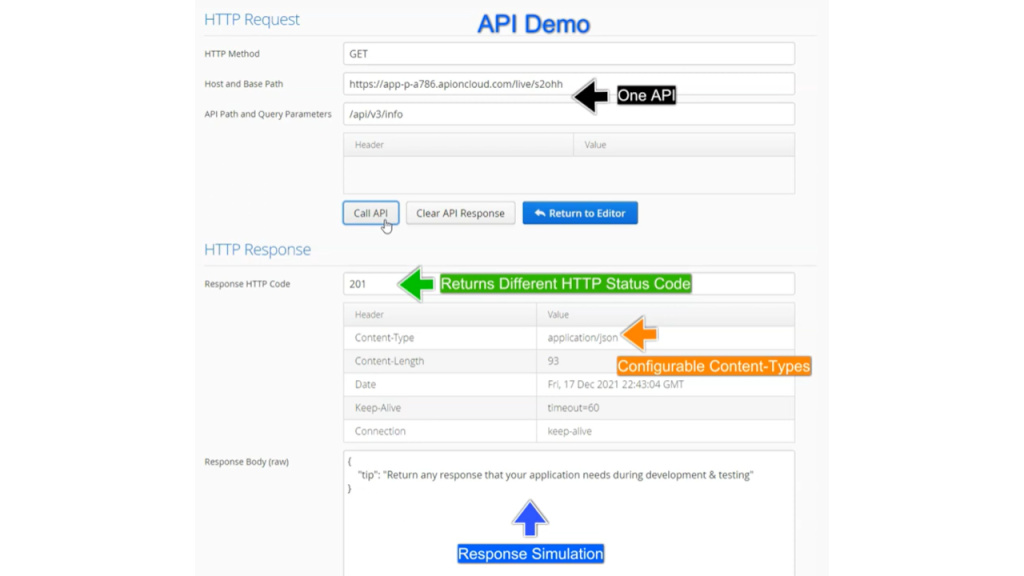
API in cloud computing is a powerful technology driving seamless communication and integration in today’s digital landscape. Imagine a world where applications effortlessly exchange data, a world where businesses operate with unprecedented flexibility and agility. Cloud-based APIs form the cornerstone of this innovative ecosystem, enabling businesses to connect diverse systems and automate processes—a key factor in modern application development. Businesses face challenges in efficiently developing and managing APIs within cloud environments. This comprehensive guide clarifies what APIs are in cloud computing and provides insights into their benefits and practical applications. You’ll discover how to address challenges, maximize your returns, and create innovative applications through cloud-based APIs.
Understanding API Fundamentals in Cloud Computing
Definition and Role
An API (Application Programming Interface) in cloud computing acts as a bridge between different software applications and services, facilitating seamless communication and data exchange. Think of it as a messenger service that enables applications to talk to each other—allowing programs to interact, share data, and perform actions without requiring complex, custom programming. Cloud APIs essentially define the rules for interacting with cloud resources. These rules, in turn, enable different programs to request and receive data without needing to know the technical details of how the other application works. These APIs, acting as intermediaries, enable services like storage, compute, networking and databases to integrate within the cloud environment—orchestrating tasks and facilitating data exchange. In essence, APIs in cloud computing automate the process of data interaction by defining clear pathways for application interaction. They streamline the process of data exchange and integration by eliminating the need for extensive, customized coding for each application. A common example in practice is the use of API to order resources like compute instances or storage space.
The Benefits of Utilizing Cloud APIs
Enhancing Scalability and Efficiency
Cloud APIs are designed for scalability, easily accommodating fluctuating demands. This scalability is crucial for businesses handling variable traffic volumes. For example, an e-commerce platform might experience a surge in customer orders during peak seasons. Cloud APIs allow resources to adjust dynamically to meet these peak demands, ensuring seamless service delivery and preventing bottlenecks. APIs are key for ensuring efficiency by enabling automation. By automating tasks like resource provisioning and data management, cloud APIs free up valuable time and resources. They eliminate the need for manual intervention, optimizing operations. Cloud APIs’ ability to adapt to changing demands ensures continuous high performance, even under pressure. This resilience to change translates to cost savings and increased efficiency. The flexibility and responsiveness enabled by APIs in cloud computing lead to considerable cost savings by optimizing resource utilization.
API Security in Cloud Environments
Addressing Security Concerns
Security is paramount in cloud computing, particularly when dealing with APIs. Cloud providers often offer security measures tailored to API interactions. One key aspect is authentication—verifying the identity of users and applications. Authorization mechanisms determine the specific actions an application or user is permitted to perform. This ensures that unauthorized access is prevented, safeguarding sensitive data and resources. Robust encryption protocols are critical for data transmission, protecting data integrity throughout the API interaction. Many cloud platforms utilize industry-standard encryption practices to ensure confidentiality and integrity. Data protection measures, access controls, and consistent monitoring and updates are critical components of API security.
Practical Applications of Cloud APIs
Real-World Examples
Cloud APIs are widely used in various sectors. Consider a banking application needing access to real-time transaction data from a cloud-based database. An API provides the pathway for seamless data retrieval. E-commerce platforms use APIs to connect with payment gateways, shipping providers, and inventory management systems, making interactions efficient and streamlined. APIs enable mobile apps to access cloud storage, enabling users to store and retrieve information securely.
API Management in Cloud Computing
Strategies for Effective API Management
Effective API management strategies are crucial for managing cloud-based APIs. API gateways act as intermediaries, routing requests to the appropriate backend services, enforcing access controls, and managing API versions. Monitoring tools are essential for identifying and resolving issues quickly. Documentation is necessary for developers to understand how to use and interact with the API. This documentation clarifies the input and output specifications, ensuring smooth interactions. Cloud-based API management platforms enable organizations to handle the complexities of API management, providing control over each step of the process.
This is a placeholder for the sixth paragraph and will need to be populated.
This is a placeholder for the seventh paragraph and will need to be populated.
This is a placeholder for the eighth paragraph and will need to be populated.
This is a placeholder for the ninth paragraph and will need to be populated.
This is a placeholder for the FAQ section and will need to be populated with the specific questions and answers.
In conclusion, APIs in cloud computing are vital for seamless communication and integration between different systems and applications. They streamline workflows, enable innovation, and foster collaboration. Understanding the intricacies of APIs empowers businesses to leverage the full potential of cloud environments. For further insights into cloud API implementation, explore our comprehensive guide on cloud-based API integration strategies. You’ll discover how to deploy scalable, secure, and reliable APIs for maximum efficiency and cost-effectiveness.